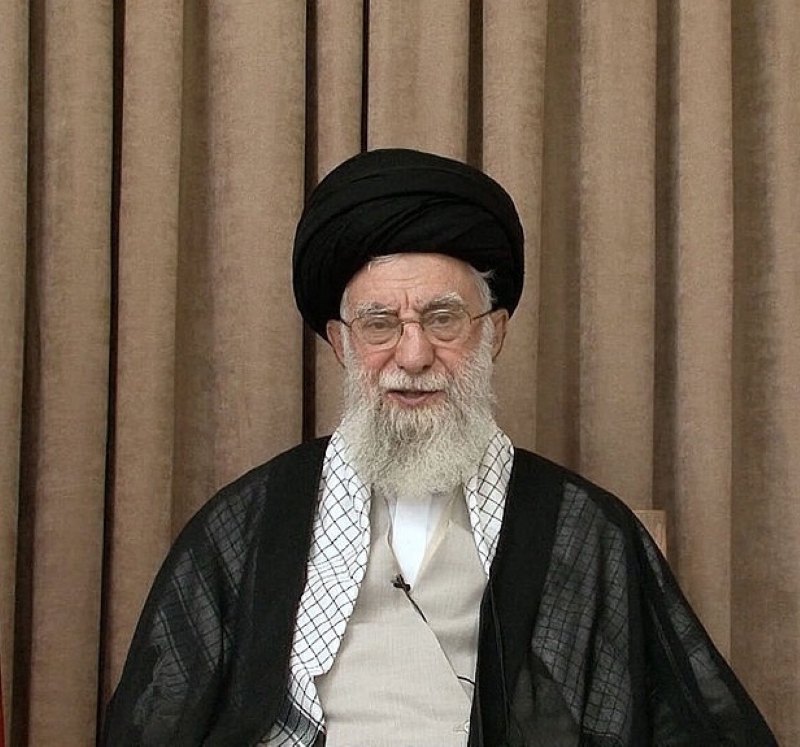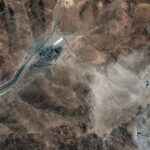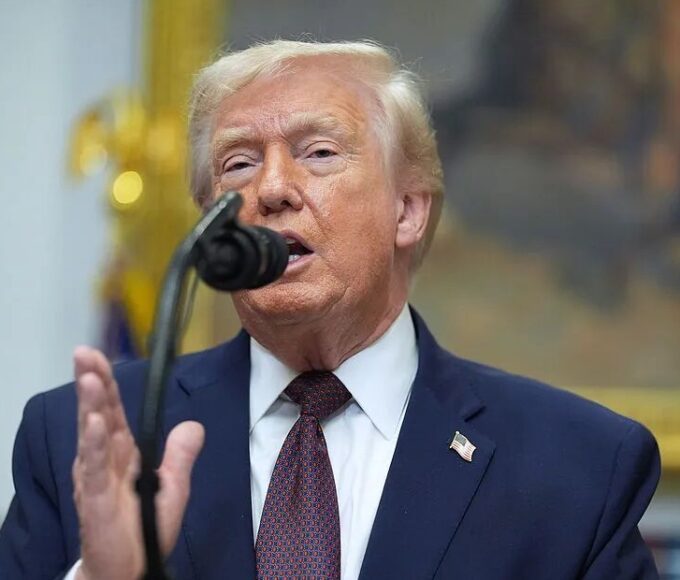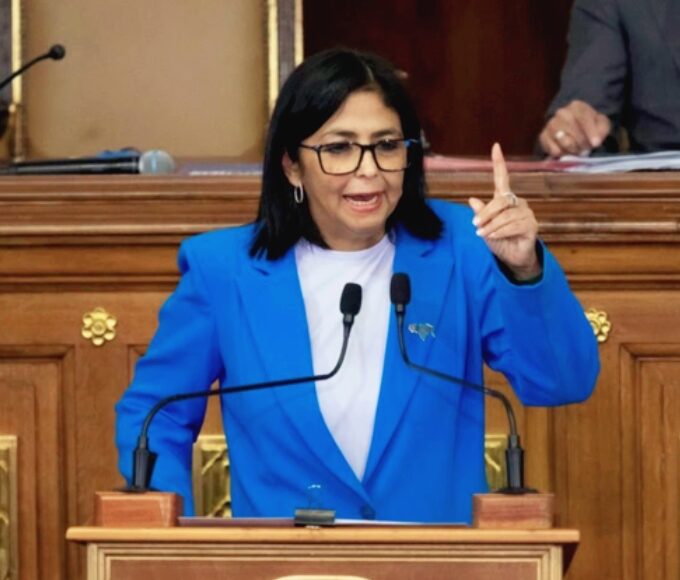“Trump Threatens to Bomb Iran Again.” Singapore’s Lianhe Zaobao reported on the 29th under this headline that the U.S. President is ramping up pressure on Iran. At a recent White House press briefing, Trump warned that if intelligence shows Iran can enrich uranium to weapons-grade levels, the U.S. would “undoubtedly” launch another strike. He also claimed he had saved Iran’s Supreme Leader Khamenei from being killed.
In response, Iran’s Foreign Minister Araghchi condemned Trump’s remarks on the 28th as “disrespectful” to Khamenei. An article in Egypt’s Al-Ahram on the same day noted that U.S.-Iran relations have entered a “dangerous state of confrontation, not dialogue.”
Observers say many Arab media outlets are pessimistic about the prospect of U.S.-Iran talks resuming in the near term, and the possibility of renewed conflict in the Middle East remains very real. AFP reported on the 29th that during a phone call between Iran’s Chief of Staff and Saudi Arabia’s Defense Minister, Iran expressed deep skepticism over whether its adversaries would honor ceasefire commitments.
Amid ongoing debate over whether Iran’s nuclear facilities have been destroyed and whether U.S.-Iran talks can be revived, international attention remains sharply focused on the Middle East. At the same time, multiple foreign media outlets have noted that recent military strikes have “reshaped the regional landscape,” with some Arab states beginning to reassess how they view threats in the region.
Iran Holds State Funeral
According to The New York Times, although Trump warned on the 27th that Iran was once again enriching uranium to worrying levels, he downplayed the likelihood of such an outcome, saying Iran was already exhausted from the damage it had suffered and was seeking dialogue with the U.S.
On the same day, Trump took to his social media platform, Truth Social, to launch a fierce attack on Iran’s Supreme Leader Ayatollah Khamenei. The trigger was Khamenei’s speech last Thursday in which he declared that Iran had “achieved victory” in its conflicts with Israel and the United States. Trump called Khamenei’s claims “lies” and stated that he “knows exactly” where the Iranian leader is hiding, but chose not to let Israeli or American forces “end his life.” Trump also revealed that he had recently started working on lifting sanctions against Iran, but “immediately abandoned” those efforts after Khamenei’s latest remarks.
On the 28th, Araghchi posted on social media saying that if Trump truly wants to reach an agreement, “he should stop disrespecting Iran’s Supreme Leader Khamenei and using an unacceptable tone.” According to the Associated Press, while Araghchi criticized Trump’s remarks, he also signaled that Iran might be open to negotiations. Araghchi also stated that “the great and powerful Iranian people have shown the world that the Israeli regime has no choice but to beg ‘Daddy’ for help to avoid being leveled by our missiles. The Iranian people will not tolerate threats and insults.”
On the 28th, Iran’s Ambassador to Japan, Sidat, told Saudi Arabia’s Arab News that Tehran remains committed to resolving issues through diplomacy. However, he stressed that “peace achieved through force is not real peace,” and criticized the U.S. for “siding with the aggressor instead of condemning those who sabotaged negotiations.”
An article in Egypt’s Al-Ahram on the same day argued that U.S.-Iran relations have entered a state of high confrontation: “Iran will not back down under humiliation, and the U.S. refuses to drop its posture of deterrence. The space for negotiations is shrinking.” Lebanon’s Al Mayadeen TV noted growing nationalist sentiment inside Iran, saying U.S. statements are “deepening Iranian distrust of America.” Qatar’s Al Jazeera reported that talk of the U.S. “bombing Iran again” is not only a threat meant to pressure Iran, but also a response to Israel’s internal security anxieties. Israel is pushing for deeper U.S. involvement in the Iran issue to divert attention from domestic political unrest and border insecurity. Still, both within the U.S. and among its allies, there is widespread concern about a renewed escalation of military conflict in the Middle East.
On the 28th, Iran held a state funeral for around 60 people killed in its war with Israel, including military commanders and nuclear scientists. According to the UK’s Financial Times, AFP, and other foreign outlets, Iran used the occasion to publicly showcase its defiance of the U.S. and Israel. State TV aired footage of crowds dressed in black, waving Iranian flags and holding photos of assassinated commanders, chanting slogans such as “No compromise, no surrender, fight the U.S.” Coffins draped in Iranian flags and adorned with portraits of uniformed officers were displayed in central Tehran.
The Associated Press reported that Supreme Leader Khamenei did not attend the funeral; his last public appearance was on June 11. He released a pre-recorded video speech last Thursday. Those attending the state funeral included Iranian President Pezeshkian, Foreign Minister Araghchi, and Esmail Qaani, commander of the IRGC’s Quds Force. Khamenei’s senior advisor, Shamkhani, appeared with a cane, refuting earlier foreign media reports that he had been killed in an attack. On the 28th, Iranian state TV quoted Shamkhani saying that after the assault, rescue teams took at least three hours to find him in the rubble.
IAEA: Iran May Resume Uranium Enrichment in a Few Months
According to a June 28 report by CBS News, International Atomic Energy Agency (IAEA) Director General Rafael Grossi said in an interview that despite recent attacks on multiple Iranian nuclear facilities, Iran is likely “just months away” from being able to resume uranium enrichment. The BBC noted that this contradicts former President Trump’s claim that Iran’s nuclear facilities have been “destroyed.”
Grossi emphasized that even if Iran’s nuclear infrastructure were wiped out, the country still retains the scientific knowledge and industrial capability to rebuild. He warned that these facts should make it clear: the Iranian nuclear issue cannot be resolved through military means alone, but must be addressed through agreements and robust verification mechanisms.
AFP reported that another key concern is whether Iran managed to relocate some or all of its roughly 400 kilograms of highly enriched uranium before the attacks. “We don’t know where that material might be,” Grossi said.
Recently, the Iranian parliament voted to suspend cooperation with the IAEA. Tehran has also denied Grossi’s request to visit damaged nuclear sites. Politico’s Europe edition reported that Iran has removed surveillance cameras from its nuclear facilities. France 24 noted that relations between Iran and the IAEA have once again hit a low point.
The New York Times reported that Trump has downplayed the concerns of European officials and nuclear experts about the possible relocation and concealment of Iran’s enriched uranium stockpile. Trump claimed that “nothing was moved from the site,” referring to the underground Fordow nuclear facility.
Middle East Order Reshaped — But Not as Expected
According to Al Jazeera on the 29th, Saudi Arabia’s Defense Minister Khalid bin Salman held a phone call with Iran’s Chief of Staff for the Armed Forces, Abdolrahim Mousavi. AFP quoted Mousavi as saying, “We did not start this war, but we responded to the aggressors with full force,” adding, “We deeply doubt the enemy’s willingness to honor any commitments, including a ceasefire.” Khalid stated that the Saudi government condemned the acts of aggression and had made significant efforts to achieve a truce.
Multiple international media outlets have recently noted that attacks on Iran by Israel and the U.S. have shifted regional perspectives in the Middle East. “The war between Israel and Iran has reshaped the Middle East — but not in the way many expected,” wrote The Wall Street Journal. Prior to the outbreak of a new round of Israeli-Palestinian conflict in October 2023, Saudi Arabia was preparing to recognize Israel under a deal that could have opened the door for broader Arab acceptance of Israel. At the time, cooperation with Israel to counter Iran was attractive to some Middle Eastern nations. But now, with Iran at a disadvantage, Saudi Arabia has less motivation to normalize ties with Israel. The kingdom is taking time to reassess the implications of Israel’s demonstrated military and intelligence dominance. Analysts say Saudi Arabia fears becoming a passive “recipient of the new regional order.”
“The U.S. sees a new Middle East, but its Gulf allies are uneasy with an unchecked Israel,” reported The Washington Post on the 28th. Last week, Iran launched a missile strike on a U.S. airbase in Qatar after issuing a warning, drawing sharp condemnation from Gulf states—but only condemnation. This, the article notes, suggests that warming ties with Iran may have offered Gulf countries some protective buffer, a trend that could continue.
The article also points out that Gulf nations’ perceptions of threats in the region have shifted since Trump’s last presidency. The sense of danger once felt from Iran has diminished, while wariness toward Israel has grown. Some Middle Eastern leaders have remarked that current regional instability stems primarily from “the conflict unfolding in Gaza.”













Leave a comment